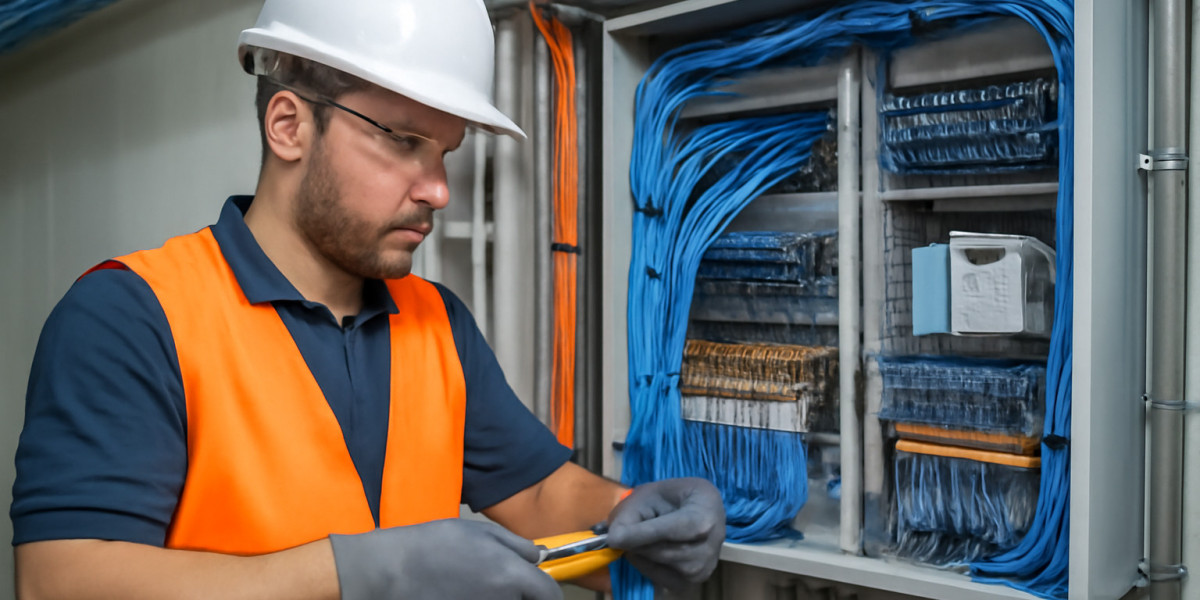Low voltage wiring systems are the hidden backbone of today’s smart buildings, powering everything from security cameras to data networks. But designing and installing these systems is anything but simple. The intricate nature of low voltage wiring multiple technologies, strict regulations, and integration demands can quickly overwhelm businesses and building owners.
That’s where specialized Low Voltage wiring contractors come in. Their expertise not only simplifies these complexities but ensures reliable, scalable, and compliant wiring solutions that stand the test of time.
In this article, we’ll explore exactly how these professionals tackle the tangled web of low voltage wiring challenges and why their role is essential in modern construction and building management.
Understanding the Complexity of Low Voltage Wiring
Low voltage wiring includes a wide range of systems:
Security and surveillance cameras
Fire alarms and life safety systems
Access control and intercoms
Data cabling for internet and communications
Audio-visual and entertainment systems
Building automation and smart controls
Each system has unique wiring requirements, standards, and equipment. Coordinating these diverse technologies in one building or across multiple sites creates a complex puzzle of routing, signal integrity, safety compliance, and future-proofing.
For example, running network cables near power lines without proper shielding can cause interference and degrade performance. Integrating fire alarms with emergency systems demands precise adherence to safety codes. Scaling infrastructure to accommodate future tech upgrades adds yet another layer of planning.
How Low Voltage Wiring Contractors Simplify These Challenges
Expert System Design Tailored to Each Project
Low Voltage wiring contractors begin by carefully assessing the building’s needs and challenges. They design detailed wiring plans that balance performance, safety, cost, and scalability.
This includes:
Determining optimal cable types (fiber optic, Cat6, coaxial) for each system
Planning cable pathways that avoid interference and allow easy access
Coordinating with architects and other trades to prevent conflicts during construction
Ensuring compliance with electrical codes and industry standards
By designing with foresight, contractors avoid costly rework and system failures down the road.
Precision Installation Techniques
Installation is where many wiring challenges surface. Contractors use specialized tools and methods to:
Prevent cable damage during pulls and bends
Ensure proper grounding and shielding to protect sensitive signals
Label and document wiring meticulously for troubleshooting and future upgrades
Minimize disruption on active construction sites by scheduling and sequencing work efficiently
Their experience turns a daunting, technical job into a smooth, organized process.
Proactive Maintenance and Troubleshooting
Once installed, systems require ongoing care to stay reliable. Low Voltage wiring contractors offer scheduled inspections, testing, and troubleshooting to catch issues before they escalate.
For example, a contractor might identify signal degradation in a security camera feed caused by a damaged cable sheath fixing it early to avoid full system failure and costly downtime.
Managing Complex Projects with Multiple Systems
In large commercial buildings, coordinating low voltage wiring for security, communications, and automation systems simultaneously demands meticulous project management.
Low Voltage wiring contractors liaise with multiple stakeholders architects, engineers, IT professionals, and general contractors to sequence work effectively, avoid cross-system interference, and meet tight deadlines.
This coordination simplifies what could otherwise be an overwhelming challenge.
Real-World Examples: Contractors Tackling Complex Wiring Projects
Imagine a multi-building corporate campus integrating access control, security cameras, data networks, and smart lighting. The wiring must be flawless to support seamless operation.
Low Voltage wiring contractors plan routes for thousands of feet of cables, coordinate with other trades to prevent conflicts, and implement cable management systems for neat, accessible installations.
Their expertise ensures all systems work harmoniously, avoiding costly rework and ensuring system longevity.
The Importance of Specialized Knowledge
Unlike general electricians, Low Voltage wiring contractors have deep knowledge of low voltage systems’ nuances. They understand the specific standards, safety requirements, and best practices needed to design and install these critical systems.
This specialization:
Reduces errors that could compromise system reliability or safety
Saves time and money by avoiding trial-and-error approaches
Ensures future readiness by building scalable, modular wiring infrastructure
Hiring specialized contractors transforms complexity into clarity.
Adapting to Emerging Technologies
The rise of smart buildings, IoT devices, and wireless solutions is reshaping the low voltage wiring landscape.
Low Voltage wiring contractors stay ahead by:
Integrating wired and wireless systems for optimal performance
Incorporating cybersecurity best practices into wiring design
Using advanced testing equipment to ensure high reliability
Continuously updating skills and knowledge to meet evolving standards
This adaptability ensures buildings remain modern and secure.
Future-Proofing Buildings Through Smart Wiring Solutions
Designing low voltage wiring isn’t just about today’s needs. Contractors build with the future in mind creating flexible, scalable systems that can support tomorrow’s technology without expensive rewiring.
This future-proofing saves money, reduces downtime, and keeps buildings competitive.
Conclusion
Low voltage wiring is complex, multifaceted, and critical to modern building operations. Trying to navigate its challenges without expertise risks costly errors, downtime, and safety issues.
Low Voltage wiring contractors bring the knowledge, experience, and tools needed to simplify this complexity. From precise design and professional installation to proactive maintenance and future-proofing, they make sure buildings are wired right the first time—and stay that way.
If you’re tackling a new build or upgrading existing infrastructure, partnering with specialized contractors is the smartest way to handle the intricate world of low voltage wiring and turn challenges into streamlined success.







